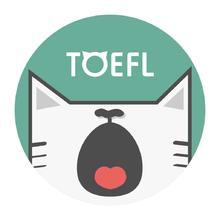 返回
教育头条
返回
教育头条

托福小文章阅读分析
今天小编给大家带来了关于托福口语听力的知识点分享,通过每天一点点的努力,总会有好的收获,希望对大家的英语学习有所帮助,祝愿大家天天开心,生活愉快。
Did you ever wonder why it is that most people are " programmed" to sleep at night instead of during the day If there's something about the cycle of light and dark that's telling us when to sleep, then shouldn't the sleep cycle of a blind person be different
As it turns out, many blind people—people with no visual perception of light at all—do have the same sleep cycle as sightedpeople. So now you're wondering, "How can this happen" The answer is: hormones, one hormone in particular. It's called melatonin. In sighted people, the level of melatonin goes up at night, or when it's dark, and goes down in the day, or when it's light. It's believed that it's the presence of this hormone in the blood that gives us the urgeto sleep. If an increase in melatonin level "programs" sighted people to sleep at night, then what about blind people
A researcher, named Dr. Charles Czeisler, tells about an interesting experiment. He tried shining a bright light into the eyes of some blind people. When he did this, he noticed that the level of the melatonin in the blood of these subjects went down just as it would do for sighted people. Somehow, the eyes of these subjects, even though they were damaged and had no visual perception of light, could tell their brain when there was more or less light. Now, this doesn't work for all blind people; in fact, most of Czeisler's subjects had no hormonalresponse to light at all. Further research may be able to explain this sensitivity to light in terms ofthe type of blindness of the subject.

【生词摘录】
1. programme: v. 编程,计划,安排
2. sighted: adj. 看得见的,有视力的
3. hormone: n. [C]荷尔蒙,激素
4. melatonin: n. [C]退黑激素
5. urge: n. [C]强烈欲望
6. hormonal: adj. 荷尔蒙的,激素的
7. in terms of: 在方面
Did you ever wonder why it is that most people are " programmed" to sleep at night instead of during the day If there's something about the cycle of light and dark that's telling us when to sleep, then shouldn't the sleep cycle of a blind person be different
As it turns out, many blind people—people with no visual perception of light at all—do have the same sleep cycle as sightedpeople. So now you're wondering, "How can this happen" The answer is: hormones, one hormone in particular. It's called melatonin. In sighted people, the level of melatonin goes up at night, or when it's dark, and goes down in the day, or when it's light. It's believed that it's the presence of this hormone in the blood that gives us the urgeto sleep. If an increase in melatonin level "programs" sighted people to sleep at night, then what about blind people
A researcher, named Dr. Charles Czeisler, tells about an interesting experiment. He tried shining a bright light into the eyes of some blind people. When he did this, he noticed that the level of the melatonin in the blood of these subjects went down just as it would do for sighted people. Somehow, the eyes of these subjects, even though they were damaged and had no visual perception of light, could tell their brain when there was more or less light. Now, this doesn't work for all blind people; in fact, most of Czeisler's subjects had no hormonalresponse to light at all. Further research may be able to explain this sensitivity to light in terms ofthe type of blindness of the subject.

【生词摘录】
1. programme: v. 编程,计划,安排
2. sighted: adj. 看得见的,有视力的
3. hormone: n. [C]荷尔蒙,激素
4. melatonin: n. [C]退黑激素
5. urge: n. [C]强烈欲望
6. hormonal: adj. 荷尔蒙的,激素的
7. in terms of: 在方面
好了,就说这么多,希望对大家有用。我是你的学习顾问王敏,选课有问题,快来找行家,我会为你匹配最适的课程,欢迎大家关注我微信(18560125702),学姐近10年教培行业工作经验,从现在开始我就是你的私人顾问,为您的课程进行一个详细系统的讲解哦。返回教育宝头条
【免责声明】本文仅代表作者本人观点,与教育宝无关。教育宝对文中陈述、观点判断保持中立,不对所包含内容的准确性、可靠性或完整性提供任何保证。请读者仅作参考,特此声明!





